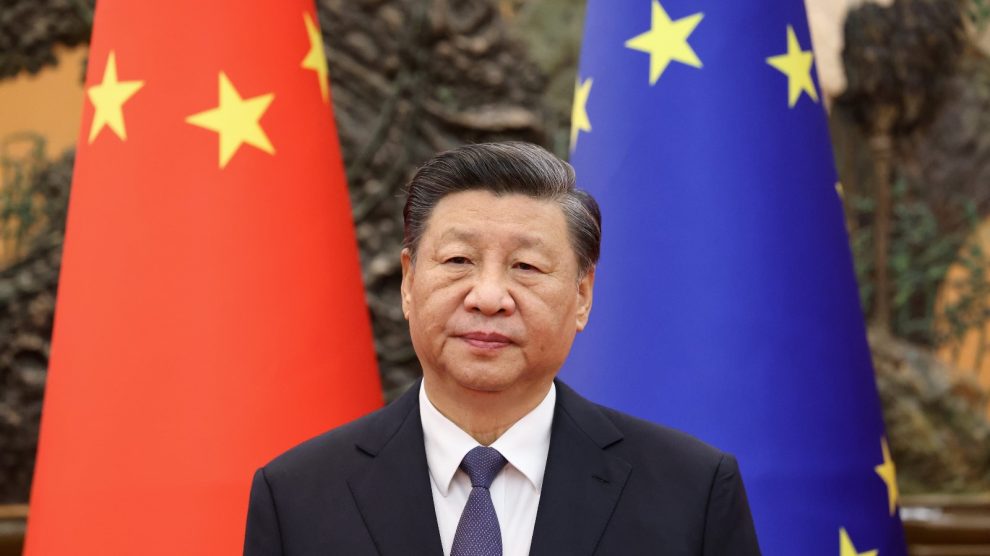A complement, not a substitute. The European Union’s Global Gateway strategy – set to foster global economic partnerships while countering China’s economic rise – should complement Xi Jinping’s Belt and Road Initiative instead of countering it, according to the annual report of the Italy China Council Foundation (a non-profit association that includes both Italian and Chinese companies and individuals, born from the integration between the Italy China Foundation and the Italy China Chamber of Commerce).
- The report, which was published on Monday, includes a survey conducted among Italian companies operating in China and a number of Chinese firms operating in Italy, as well as an analysis of the BRI’s first decade.
- It posits that the Global Gateway “shouldn’t serve as Europe’s substitute for the BRI but rather a natural complement, given ample space for collaborative, multi-source investments.”
- It does not specify that Rome has already signalled to Beijing that it would exit the BRI this year and revert to the pre-existing strategic partnership between the two capitals.
Italy as “China’s gateway to Europe”? According to Mario Boselli, the Foundation’s president, it is time to “take a decisive step towards enhancing the economic and cultural ties” between Rome and Beijing. “We are firmly convinced that the focus of this revitalisation of bilateral relations should be the enterprise, both Italian and Chinese, with Italy as China’s gateway to Europe and China as Italy’s gateway to Asia,” he wrote in the report’s preface.
- Mr Boselli noted that between 2014 and 2019, Italy received the most money among the 18 EU countries who have signed the memorandum of understanding to access the BRI.
- Italy only signed the document in 2019.
- He also remarked that the last investment reported in the BRI framework (amounting to $580 million) dates back to October 2020, noting that Chinese investments in the EU have suffered a general decline.
- He did not mention that exports to China from some non-BRI EU countries have grown more than Italy’s, contradicting a basic premise for entering the framework.
Suspiciously like-minded. Mr Boselli’s claims align with Beijing’s, which has been warning Western capitals not to oppose the BRI with competing projects – while also pushing the idea that the EU’s own is not an alternative. Most recently, the Chinese mission to the EU organised an event (“The BRI and Global Gateway: searching for complementarity in competing narratives”) to discuss how to link the two investment programmes.
- Chinese Ambassador to the EU Fu Cong and Luc Bagur, Director for Sustainable Development Policy and Coordination at the European Commission, participated in the event.
- Also, as reported by the South China Morning Post, the Global Gateway’s business advisory board includes a State-linked Chinese company – a fact that sparked criticism in the context of the EU’s de-risking drive.
Mind the timing. The report was released only a few days before the EU-China summit, where expectations for concrete deliverables are especially low, at a time when Brussels is attempting to reduce trade imbalance and de-risk from Beijing while simultaneously strengthening relations with the US.
- During a recent visit to China, EU Commissioner for Trade Valdis Dombrovskis mentioned that the trade deficit amounted to €400 billion (out of €200 billion of total interchange) and said that the EU “also needs to protect itself in situations when its openness is abused.”





